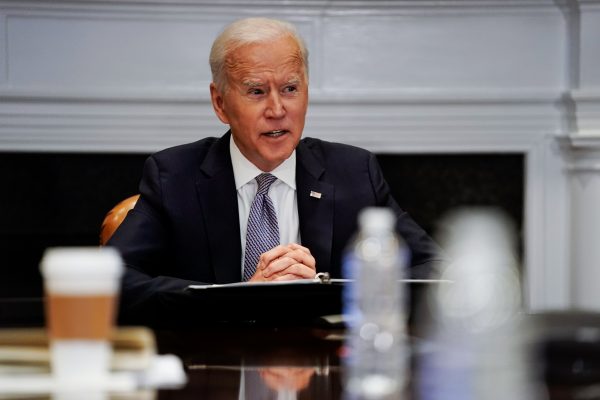The U.S. Senate advanced legislation on Monday in a bipartisan effort to take on China as a strategic competitor to the United States and to further establish American technological prowess.
In an 86-11 vote, the U.S. Senate advanced the Endless Frontier Act which aims to boost U.S. technology research and development by investing $100 billion dollars over five-years in numerous technological areas to counter China.
While the bill does not specifically reference China, Chuck Schumer (D-N.Y.) stated on the floor, “We can either have a world where the Chinese Communist Party determines the rules of the road for 5G, artificial intelligence and quantum computing — or we can make sure the United States gets there first.”
The legislation identifies three key areas of focus, “to strengthen U.S. leadership in critical technologies through fundamental research” to “enhance U.S. competitiveness” and to “foster the impact of federally funded research and development.”
The bill also “redesignates the National Science Foundation as the National Science and Technology Foundation and establishes a Directorate for Technology within the foundation.” according to Congress.gov.
Bipartisan effort
Success
You are now signed up for our newsletter
Success
Check your email to complete sign up
Senate Majority Leader Chuck Schumer (D-N.Y.) and Sen. Todd Young (R-Ind.), a rising star in the Republican Party, championed the bill.
Schumer referred to the bill as a “once-in-a-generation investment in American Science and American technology.” adding that, “The coronavirus pandemic has shown the science and technology gap between the United States and the rest of the world is closing fast and that threatens our long-term health, economic competitiveness, and national security,”
In a press release Senator Young stated, “instead of allowing Beijing to threaten our values and interests, now is the time for America to invest in ourselves and give the world a clear alternative…we must position ourselves to lead and the Endless Frontier Act is the way to do it.”
The White House announced on Monday that U.S. President Biden supports the bill stating that the bill was “an important step in ensuring the U.S. remains globally competitive in the 21st century.”

The bill addresses numerous areas that the $100-billion commitment will target. These include fields such as artificial intelligence and machine learning; high performance computing; semiconductors and advanced computer hardware; quantum computing and information systems; robotics; biotechnology; as well as solutions for “natural or anthropogenic” disaster prevention.
It is expected that once passed into law, the bipartisan bill will address the global semiconductor shortage, potentially establishing additional chip manufacturing facilities on American soil.
It’s also anticipated that the bill will include measures to revitalize manufacturing centers and to outline a diplomatic national security strategy for the U.S. in the Indo-Pacific region.
Young raised concerns that an adopted amendment to the bill could redirect billions of dollars towards the Department of Energy and implied that Republicans could withdraw their support for the final bill but remained optimistic.
“I am not going to try to fundamentally re-work this product,” Young told POLITICO.
Maintaining American dominance in research
The bill reads, “While the United States once led the world in the share of our economy invested in research, our Nation now ranks 9th globally in total research and development and 12th in publicly financed research and development.”
This is perhaps the strongest indication that the U.S, is currently lagging behind many of its adversaries in the research and development of new and existing technologies.
The bill states that “without a significant increase in investment in research, education, technology transfer, and the core strengths of the United States innovation ecosystem, it is only a matter of time before the global competitors of the United States overtake the United States in terms of technological primacy.”
The bill acknowledges that employment growth in the innovation sector is limited to just five major cities in the U.S. and aims to address this imbalance through partnering with the private sector to promote new hubs outside of the already established areas like Silicon Valley.
An additional $10 billion is earmarked for the establishment of regional technology hubs across the United States.
While not officially passed yet, it is expected that the bill will proceed successfully towards completion by June 2021.














